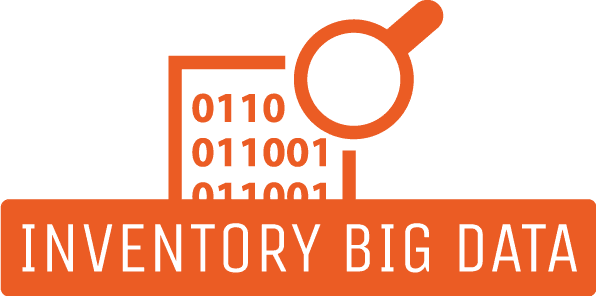Data of IT Systems Manager
Description
As IT Systems Manager, Jasper is responsible for overseeing the information technology systems and infrastructure of the organization he works for.
IT Systems Manager, KPI’s
Key Performance Indicators (KPIs) for an IT Systems Manager in an industrial company might include:
- System uptime: This KPI measures the percentage of time that critical IT systems are available and functioning properly. The IT Systems Manager should aim for a high uptime percentage to ensure minimal disruption to business operations.
- Response time: This KPI measures the time it takes for the IT Systems Manager to respond to issues and resolve them. The IT Systems Manager should aim for a quick response time to minimize downtime and ensure business continuity.
- Incident resolution: This KPI measures the percentage of incidents that are resolved within a set timeframe. The IT Systems Manager should aim for a high percentage of incidents resolved within the agreed timeframe to minimize downtime and ensure business continuity.
- Security compliance: This KPI measures the level of compliance with IT security policies and standards. The IT Systems Manager should aim for a high level of security compliance to ensure the confidentiality, integrity, and availability of business data.
- Project delivery: This KPI measures the IT Systems Manager’s ability to deliver IT projects on time and within budget. The IT Systems Manager should aim for a high percentage of projects delivered on time and within budget to ensure that the IT systems support the business objectives.
- User satisfaction: This KPI measures the level of satisfaction of end-users with IT services. The IT Systems Manager should aim for a high level of user satisfaction to ensure that the IT systems meet the needs of the business.
- Cost savings: This KPI measures the IT Systems Manager’s ability to identify and implement cost-saving initiatives. The IT Systems Manager should aim for a high level of cost savings to ensure that IT investments are optimized and aligned with business goals.
SIPOC
- Supplier: IT vendors, hardware and software providers
- Inputs: User requirements, business requirements, hardware and software specifications, security policies
- Process: IT systems development, implementation and maintenance, user training and support
- Outputs: IT systems, user manuals, IT support, system performance metrics
- Customers: Internal users, external clients and stakeholders
As the IT Systems Manager, the individual would be responsible for managing the development, implementation and maintenance of all IT systems within the industrial company. The role involves managing the entire process, from gathering user and business requirements to selecting the appropriate hardware and software solutions and managing the development process.
The IT Systems Manager would also be responsible for ensuring that all IT systems are implemented in accordance with the company’s security policies and regulations. They would also be responsible for providing user training and support to ensure that all internal users are able to effectively use the systems.
The outputs of the process would include the IT systems themselves, along with user manuals, IT support and system performance metrics. The customers of the process would include internal users, external clients, and stakeholders, who would be relying on the IT systems to support their operations and achieve their business objectives.
Throughout the process, the IT Systems Manager would need to work closely with their team to ensure that everyone is working together efficiently and effectively, and that any issues or problems are resolved quickly to minimize any disruptions to the company’s IT systems. They would also need to stay up-to-date with the latest industry developments and trends to ensure that the company’s IT systems remain innovative and competitive.
Role of data
As an IT Systems Manager in an industrial company, data plays a crucial role in decision-making and optimization of operations. In today’s era of digital transformation, companies are increasingly relying on data-driven insights to improve efficiency, reduce costs, and enhance overall performance. As a result, IT systems managers must have a strong understanding of how to collect, manage, analyze, and interpret data to drive success in their organization.
One of the primary responsibilities of an IT Systems Manager is to ensure the smooth functioning of various IT systems and applications used in the company. Data management is one such critical area that requires attention. The manager must ensure that all data generated within the organization is collected, stored, and managed appropriately. Data should be accurate, complete, and available on-demand, and should be protected from unauthorized access and breaches.
The manager must also ensure that the data is used efficiently to optimize operations. For instance, data can be used to predict maintenance requirements for machines, improve supply chain management, and identify potential quality issues before they occur. By leveraging data insights, the IT systems manager can make informed decisions that can significantly impact the company’s bottom line.
Another critical role that the IT systems manager plays in data management is identifying opportunities for automation. Automating processes not only improves efficiency but also reduces the likelihood of errors, which can be costly in an industrial setting. For example, automating data entry processes can reduce the risk of human error, leading to more accurate data and better decision-making.
Furthermore, the IT systems manager can play a critical role in ensuring compliance with data privacy and security regulations. With the rise of cyber threats and data breaches, companies must ensure that they adhere to strict data privacy and security standards. The IT systems manager must work closely with other stakeholders, including the legal and compliance teams, to ensure that the company’s data privacy and security policies are up-to-date and implemented effectively.
In conclusion, the role of data in an industrial company cannot be understated. As an IT Systems Manager, it is essential to understand how data is collected, managed, analyzed, and interpreted to drive success in the organization. By leveraging data insights, automating processes, and ensuring compliance with data privacy and security regulations, the IT systems manager can help the company achieve its goals while remaining competitive in an increasingly data-driven world.
Additional information
| Publication |
|---|



